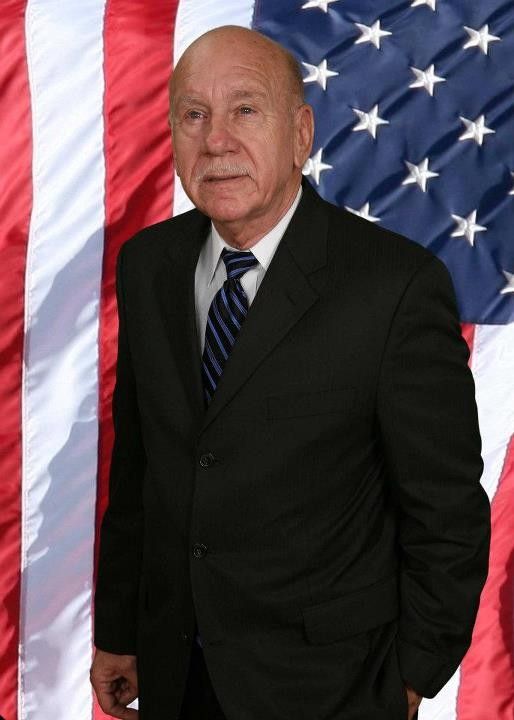cfabamerica.com/was-america-built-on-christian-doctrine part-one
https://www.cfabamerica.com/part-3-black-muslims-nation-of-islam part 3
https://www.cfabamerica.com/information-taken-from-the-american-mosque-2011 part 4
https://www.cair.com/images/pdf/The-American-Mosque-2011-part-1.pdf
Write-in TOLBERT for
US Senate Florida 2016 NPA
CFA Citizens For America
Citizens for a Better America, Inc.
Charles Frederick Tolbert BS, DivM, EdM, EdD
Retired MSGT
Pastor
561-398-9025
Www.writeintolbert.com
Www.cfabamerica.com
How Thomas Jefferson handled the Muslim issues
When Thomas Jefferson saw there was no negotiating with Muslims, he formed what is now the Marines (sea going soldiers). These Marines were attached to U. S. Merchant vessels. When the Muslims attacked U.S. merchant vessels they were repulsed by armed soldiers, but there is more.
The Marines followed the Muslims back to their villages and killed every man, woman, and child in the village.
It didn’t take long for the Muslims to leave U.S. Merchant vessels alone.
English and French merchant vessels started running up our flag when entering the Mediterranean to secure safe travel.
Why the Marine Hymn contains the verse, “To the Shores of Tripoli”.
This is very interesting and a must read piece of our history. It points out where we may be heading.
Most Americans are unaware of the fact that over two hundred years ago the United States had declared war on Islam, and Thomas Jefferson led the charge!
At the height of the 18th century, Muslim pirates (the “Barbary Pirates”) were the terror of the Mediterranean and a large area of the North Atlantic.
They attacked every ship in sight, and held the crews for exorbitant ransoms. Those taken hostage were subjected to barbaric treatment and wrote heart-breaking letters home, begging their governments and families to pay whatever their Mohammedan captors demanded.
These extortionists of the high seas represented the North African Islamic nations of Tripoli, Tunis, Morocco, and Algiers – collectively referred to as the Barbary Coast – and presented a dangerous and unprovoked threat to the new American Republic.
Before the Revolutionary War, U.S. merchant ships had been under the protection of Great Britain. When the U.S. declared its independence and entered into war, the ships of the United States were protected by France.
However, once the war was won, America had to protect its own fleets.
Thus, the birth of the U.S. Navy. Beginning in 1784, 17 years before he would become president, Thomas Jefferson became America’s Minister to France. That same year, the U.S. Congress sought to appease its Muslim adversaries by following in the footsteps of European nations who paid bribes to the Barbary States rather than engaging them in war.
In July of 1785, Algerian pirates captured American ships, and the Dye of Algiers demanded an unheard-of ransom of $60,000. It was a plain and simple case of extortion, and Thomas Jefferson was vehemently opposed to any further payments.
Instead, he proposed to Congress the formation of a coalition of allied nations who together could force the Islamic states into peace.
A disinterested Congress decided to pay the ransom.
In 1786, Thomas Jefferson and John Adams met with Tripoli’s ambassador to Great Britain to ask by what right his nation attacked American ships and enslaved American citizens, and why Muslims held so much hostility towards America, a nation with which they had no previous contacts.
The two future presidents reported that Ambassador Sidi Haji Abdul Rahman Adja had answered that Islam “was founded on the Laws of their Prophet, that it was written in their Quran that all nations who would not acknowledge their authority were sinners, that it was their right and duty to make war upon them wherever they could be found, and to make slaves of all they could take as prisoners, and that every Musselman (Muslim) who should be slain in battle was sure to go to Paradise.” Despite this stunning admission of premeditated violence on non-Muslim nations, as well as the objections of many notable American leaders, including George Washington, who warned that caving in was both wrong and would only further embolden the enemy, for the following fifteen years the American government paid the Muslims millions of dollars for the safe passage of American ships or the return of American hostages.
The payments in ransom and tribute amounted to over 20 percent of the United States government annual revenues in 1800.
Jefferson was disgusted. Shortly after his being sworn in as the third President of the United States in 1801, the Pasha of Tripoli sent him a note demanding the immediate payment of $225,000 plus $25,000 a year for every year forthcoming.
That changed everything.
Jefferson let the Pasha know, in no uncertain terms, what he could do with his demand. The Pasha responded by cutting down the flagpole at the American consulate and declared war on the United States.
Tunis, Morocco, and Algiers immediately followed suit.
Jefferson, until now, had been against America raising a naval force for anything beyond coastal defense, but, having watched his nation be cowed by Islamic thuggery for long enough, decided that it was finally time to meet force with force.
He dispatched a squadron of frigates to the Mediterranean and taught the Muslim nations of the Barbary Coast a lesson he hoped they would never forget. Congress authorized Jefferson to empower U.S. ships to seize all vessels and goods of the Pasha of Tripoli and to “cause to be done all other acts of precaution or hostility as the state of war would justify”.
When Algiers and Tunis, who were both accustomed to American cowardice and acquiescence, saw the newly independent United States had both the will and the right to strike back, they quickly abandoned their allegiance to Tripoli.
The war with Tripoli lasted for four more years, and raged up again in 1815. The bravery of the U.S. Marine Corps in these wars led to the line “to the shores of Tripoli” in the Marine Hymn, and they would forever be known as “leathernecks” for the leather collars of their uniforms, designed to prevent their heads from being cut off by the Muslim scimitars when boarding enemy ships.
Islam, and what its Barbary followers justified doing in the name of their prophet and their god, disturbed Jefferson quite deeply.
America had a tradition of religious tolerance. In fact Jefferson, himself, had co-authored the Virginia Statute for Religious Freedom, but fundamentalist Islam was like no other religion the world had ever seen.
A religion based on supremacy, whose holy book not only condoned but mandated violence against unbelievers, was unacceptable to him.
His greatest fear was that someday this brand of Islam would return and pose an even greater threat to the United States. This should concern every American. In some places it is death by a thousand cuts, or inch-by-inch as some refer to it, and most Americans have no idea that this battle is being waged every day across many of the European countries. By not fighting back, by allowing groups to obfuscate what is really happening, and not insisting that the Islamists adapt to our culture, the United States will cut its own throat with a politically correct knife, and helping to further the Islamists’ agenda just as has been done in France, England, Germany, etc. Sadly, it appears that today America’s leaders would rather be politically correct than victorious!
If you have any doubts about the above information, Google “Thomas Jefferson vs. the Muslim World.”
Truth or Fiction says:
The Truth:
The U.S. fought in two separate wars over state-sponsored Muslim pirates along Africa’s Barbary Coast in the early 1800s.
The eRumor’s claims about the lead up to the Barbary Wars are also accurate. After the U.S won its independence, France stopped protecting U.S. ships in the Mediterranean, according to papers collected by the Library of Congress. Thomas Jefferson, then United States Minister to France, grew increasingly frustrated with paying ransom to the Barbary pirates after French protection ended. Jefferson tried to negotiate an accord with France and Great Britain, but that fell through.Jefferson later wrote in a letter, “From what I learn from the temper of my countrymen and their tenaciousness of their money, it will be more easy to raise ships and men to fight these pirates into reason, than money to bribe them.”
The eRumor’s recounting of an interaction between Thomas Jefferson and John Adams and an ambassador to Tripoli about the motives for the pirate attacks is also accurate, according to a book of diplomatic correspondences.
Jefferson and Adams wrote: “The Ambassador answered us, that (the aggression) was founded on the laws of their Prophet; that it was written in their Koran, that all nationals who should not have acknowledged their authority, were sinners; that it was their right and duty to make war upon them wherever they could be found, and to make slaves of all they could take as prisoners; and that every Mussulman who was slain in battle was sure to go to Paradise.”
George Washington attempted to forge treaties with Barbary Coast states, as the eRumor claimed, and he expressed frustration about France’s role in a letter he penned in 1796. Just after Algiers pirates had released American hostages in accordance with a treaty, Washington received news that pirates from Tunis had taken more American hostages. “’Tis difficult to understand precisely what the French government design relative to this country,” Washington replied.
As it turned out, France and Great Britain benefited from the Barbary pirates, and they may have even supported them. The State Department’s Office of the Historian said, “The practice of state-sponsored piracy and ransoming of captives was not wholly unusual for its time. Many European states commissioned privateers to attack each others’ shipping and also participated in the transatlantic slave trade. The two major European powers, Great Britain and France, found it expedient to encourage the Barbary States’ policy and pay tribute to them, as it allowed their merchant shipping an increased share of the Mediterranean trade, and Barbary leaders chose not to challenge the superior British or French navies.”
After Jefferson was elected president, Tripoli declared war on America in 1801.
War followed with Algiers in 1815, but the U.S. had bulked up its naval fleet for the War of 1812, and the war ended
quickly, according to Library of Congress documents.
See also: https://en.wikipedia.org/wiki/ First_Barbary_War









